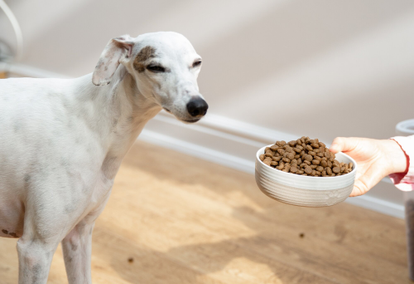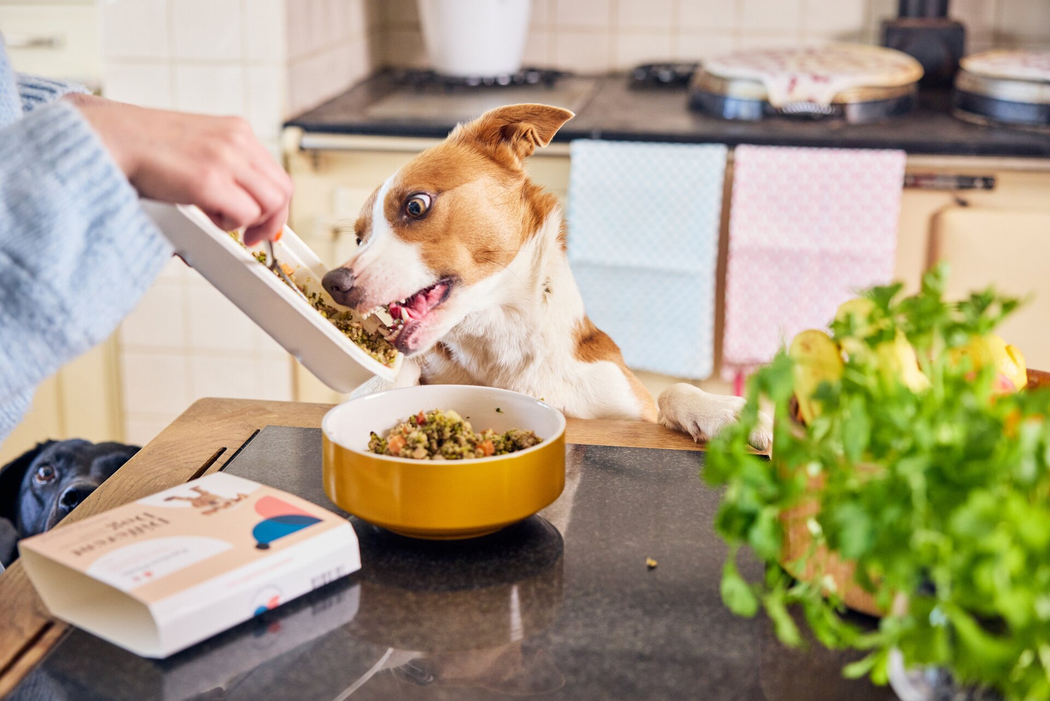

Our food is approved & verified by our in-house veterinarian, canine nutritionist and behaviourist.
The Dog food market has evolved significantly in the past few years, giving owners plenty to choose from. This has naturally sparked an interesting and fierce debate in the dog community with the age-old question of:
“Which Dog Food is best for my Dog?”
Dog owners are becoming increasingly more health conscious regarding the types of meals they feed their furry friends, with kibble, wet, raw and fresh, the main contenders vying for the hearts of dog owners and their pets.
The choices can be overwhelming and, on occasion, less than appetising. Kibble has been mainstream for dogs over the past 50 years, but is it still a good meal option for a happy and healthy dog?
Fresh dog food arrived on the market with a bang, emphasising the long-term health benefits of serving our beloved dogs freshly cooked healthy proteins alongside nutritious fruits & veggies. As we know, our dogs are our whole world; therefore, investing in a diet that could help them live longer is more than worthwhile!
This article aims to help everyone, from first-time dog owners to experienced handlers, compare the health benefits of kibble vs. freshly cooked food and conclude which diet is best for your dog.
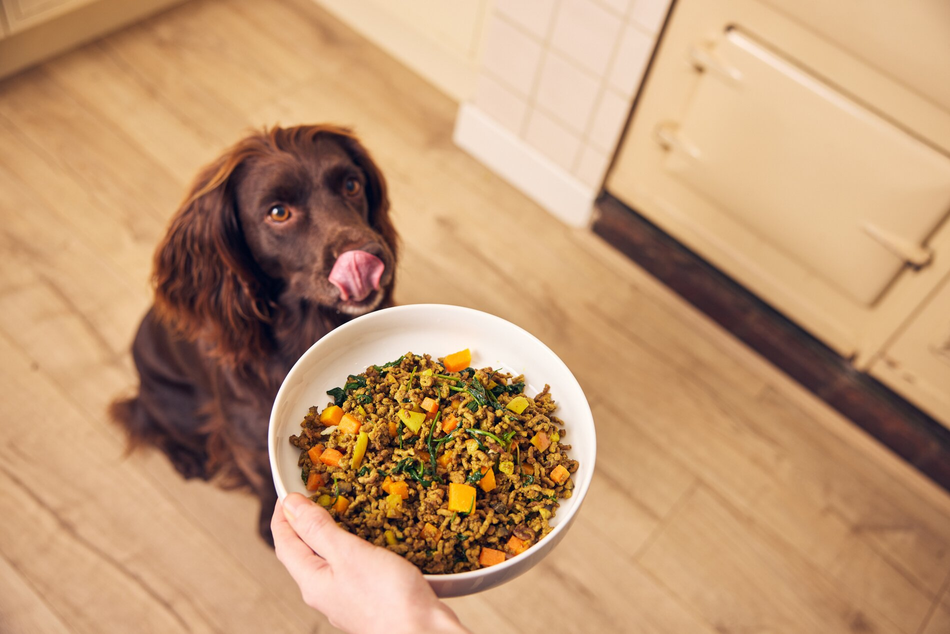
What is Kibble for Dogs?
Kibble is dry dog food made from ingredients such as meat, vegetables, legumes and grains.
Kibble takes the shape of bite-sized biscuits, which are generally quite affordable and readily available in local supermarkets and pet shops, which is convenient for owners looking for a budget-friendly diet.
But is kibble all it’s cracked up to be?
How is Kibble Made?
Kibble, often referred to as dry dog food, is mass-produced and manufactured, partly because of how easy it is to make. It is developed through food extrusion, which means they mix ingredients such as animal protein, veggies, and fruits and blast cook them at extremely high temperatures. Sadly, while convenient, this cooked method removes most of the nutrition and natural moisture from these ingredients.
Additionally, preservatives are often added to boost the product's shelf life in stores. In terms of human food, fresh, healthy doesn’t usually last months in the cupboard; it is stored in the fridge and best consumed fresh, and dog food is no different.
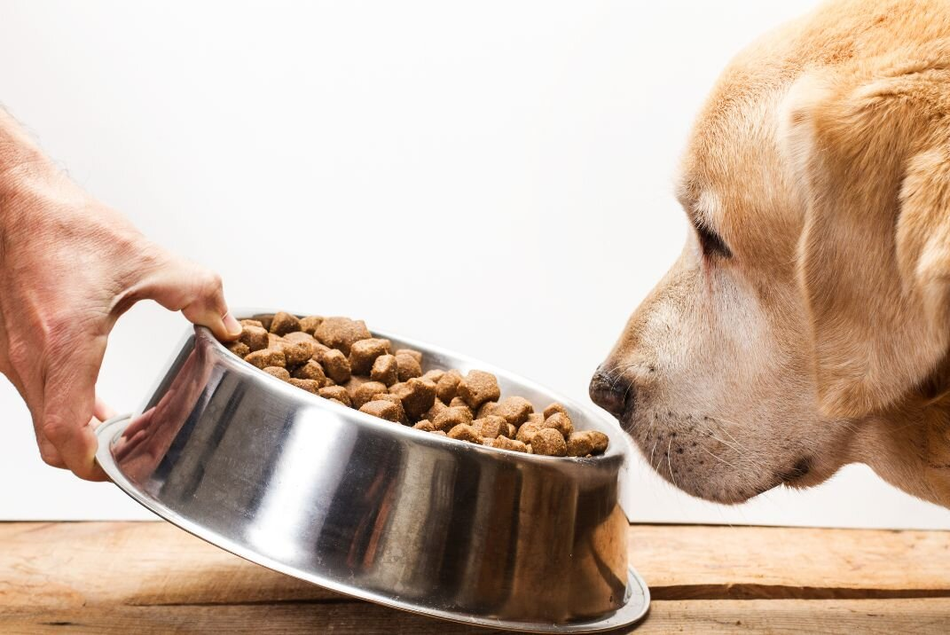
Can you Feed Kibble to your Dog?
The short answer is yes, you can feed your dog kibble, but not if you want them to be the happiest, healthiest versions of themselves.
Highly processed kibble has been a popular food option with dog owners for years due to its ease of use and low cost. So, while this might be convenient for owners, it is not so beneficial for your dog.
Within your local supermarket, you will likely find many variations of kibble and countless brands that sell it. It’s important to know exactly what you are feeding, so we recommend reading the labels in detail on any dog food you are thinking about feeding. Anything with a very low percentage of meat and references to “animal derivatives” might not be the best for your dog.
Advantages and disadvantages of Feeding Kibble Dog Food
So, while there are some advantages of feeding dry dog food, like convenience, ease of portion control and suitability for a budget, when considering a kibble diet, we must ask, do these advantages outweigh the disadvantages?
Processed Ingredients: The high temperatures that kibble is cooked under can lead to a loss in nutritional value, with some brands using synthetic vitamins which are extremely harmful to your dog.
Limited health benefits: With less nutrition comes fewer health benefits. An unhealthy diet can cause an upset digestive system, itchy skin, dull coat, lack of energy and even more severe issues such as heart and liver problems.
Lack of taste and variety: Fussy pups often struggle with a kibble diet, and we don’t blame them; you probably wouldn’t look forward to dinner if you got the same boring, dry bowlful every day.
Hydration: As Kibble is dry, it has a low moisture content, which can impact your dog's hydration. This could lead to dehydration, resulting in a lack of energy and loss of appetite for your dog.
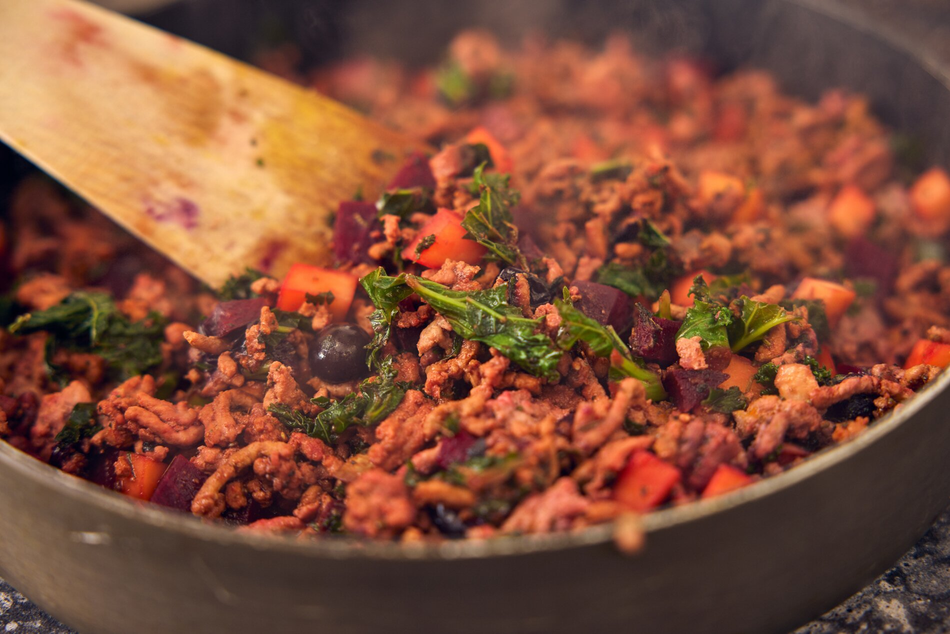
Is Fresh Dog Food the Best Choice for Your Dog?
Unlike kibble, freshly cooked dog food is packed full of high-quality, natural ingredients gently cooked at a low temperature to retain their high nutritional value. No harsh cooking practices, no cheap fillers such as grains or legumes, which can be difficult for dogs to digest, and absolutely no additives and preservatives.
In addition, fresh food’s digestible texture, sumptuous flavours and delicious aromas are often much more appealing to dogs (even the picky eaters). Our freshly cooked meals have helped hundreds of formally fussy eaters rediscover their appetite, making dinner time much less stressful for you and them!
We know every dog is different, and ultimately, the best choice for dogs depends on a number of factors, such as your dog's health, taste preferences and lifestyle. Whatever dog food you choose, just ensure you do your research first.
Click here to learn more about the health benefits of a freshly cooked diet, or if you’re ready to embrace the goodness of fresh dog food, get started today.
Your dog’s well-being starts when you make the right choices for them.



